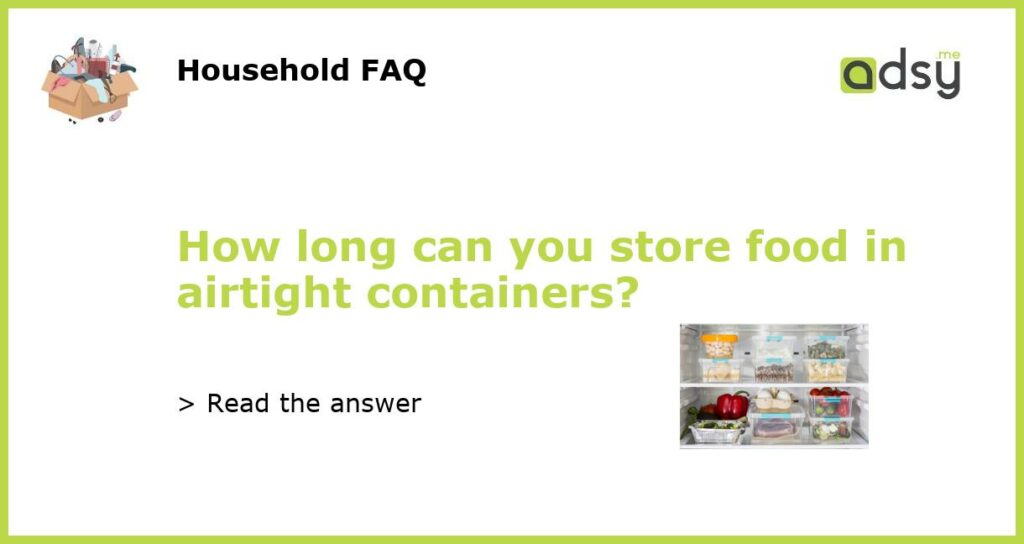Understanding the Basics of Food Storage
One of the biggest concerns that people have when it comes to food storage is how long they can store their food in airtight containers. While there is no one-size-fits-all answer to this question, there are some general guidelines that you can follow to ensure that your food stays fresh and safe to eat for as long as possible.
Factors That Affect Food Storage
The length of time that you can store food in airtight containers depends on a variety of factors, including the type of food, the temperature, and the humidity levels where the food is being stored. For example, high-acid foods like tomato-based sauces and fruits tend to spoil more quickly than low-acid foods like meats and vegetables. Additionally, food that is stored in a warm and humid environment will spoil more quickly than food that is stored in a cool, dry place.
General Guidelines for Storing Food
To extend the shelf life of your food, it is important to store it properly in airtight containers. Some general guidelines that you can follow include:
- Make sure the containers are completely airtight to prevent moisture and oxygen from getting in.
- Store food in a cool, dry place away from direct sunlight.
- Mark the date that the food was stored on the container so that you can keep track of how long it has been in storage.
- Rotate your food storage by using the oldest items first so that nothing goes to waste.
Foods That Can Be Stored for a Long Time
While each type of food has its own unique storage requirements, there are some foods that can be stored for a long time in airtight containers. Some examples include:
- Dried fruits and vegetables
- Dehydrated meats and fish
- Canned foods
- Grains and legumes
- Nuts and seeds
- Baking supplies like flour and sugar
When in Doubt, Trust Your Senses
Ultimately, the best way to determine if your food is still safe to eat is to use your senses. If the food looks, smells, or tastes off, it is best to err on the side of caution and throw it out. By following these guidelines and using your senses, you can ensure that your food stays fresh and safe to eat for as long as possible.



![GUANFU [10 Pack] Meal Prep Containers 1 Compartment, BPA Free Reusable Food Prep Containers with Lids - Microwave, Freezers & Dishwashers Safe - Stackable Storage Lunch Boxes (28 oz)](https://m.media-amazon.com/images/I/51I6N9hCEJL.jpg)


